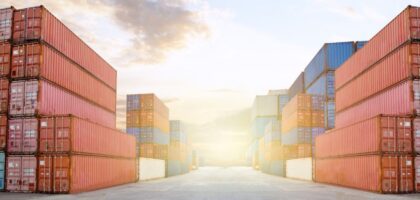There are fewer than three weeks until the UK leaves the EU’s single market and customs union on December 31, when the current transition period will end. No agreement between the parties has yet been reached, leading to fears of a ‘hard’ exit, wherein the UK would immediately revert to World Trade Organization (WTO) terms with the EU.
Background
On March 29, 2017, Prime Minister Theresa May triggered Article 50 of the Lisbon Treaty and formally declared the UK’s intention to leave the EU. This action was the beginning of a 2-year period for the exit terms to be agreed upon and finalized. Ms. May began formal negotiations with the EU Parliament in July 2018 and brought the tentative agreement to British Parliament in December. British lawmakers were immediately critical of the plan, going so far as to call for a vote of no-confidence in Ms. May. The plan included the controversial “backstop” at the Irish border which would have kept Northern Ireland temporarily in the EU single market while an alternate arrangement was negotiated.
May’s proposal was defeated in Parliament three times and she eventually resigned, being replaced by Boris Johnson. More than 3½ years after the referendum that began the process, the terms under which the UK would leave the EU were finally approved by British Parliament and ratified by the European Parliament. The UK formally left the EU on January 31, 2020.
Current Status
The UK and EU are attempting to finalize the rules which will govern the future relationship between the UK and the EU and negotiate a free trade agreement, but negotiations have been troubled over issues of fishing, state aid, and how trade will flow through Northern Ireland.
“If that sounds familiar to you, it is because there has been no decisive progress made so far,” the diplomat said of the last few days of discussions, briefing reporters on the talks under ground rules of anonymity. The EU is the UK’s largest trading partner, with nearly half of the UK’s exports to, and just over half the imports from the collective. Negotiators are fast running out of imports from the collective. Negotiators are fast running out of time, since any deal would need to be approved by EU leaders and a handful of parliaments before December 31.
Impact
The transition period, which began on February 1, ends on December 31 and the deadline for extending has passed. If a new trade deal is not approved, then tariffs and border checks would be applied to UK goods travelling to the EU. Currently, trade between the UK and EU is tariff-free. But the Confederation of British Industry (CBI) predicts that no-deal would mean that 90% of the UK’s goods exports to the EU would be subjected to tariffs. UK goods entering the EU will face full customs controls, including customs declarations, animal product health paperwork, and some border checks—most of which will be required whether or not there is a deal. Goods from the EU entering the UK will not face full customs control for the first six months under a phased-in approach, but the requirements will ramp up between January and July 2021. France has said it plans to immediately implement post-Brexit border controls at its ports in the event of no-deal. The UK government has estimated that 50% to 85% of truck drivers would not have the correct documentation to enter the EU, and that long queues (up to 7,000 trucks) are expected.
Medicines could be caught up in delays at borders. While medicines are not subject to tariffs under the WTO rules, non-tariff barriers could hold up the movement of everything from the chemicals making up a drug to the finished product.
The expectation is increased costs for businesses and delays for companies in several sectors, including car manufacturing, food, textiles, pharmaceuticals and chemicals, which rely on just-in-time supply chains. More than 25% of all food consumed in the UK last year was supplied by EU countries, and a no-deal Brexit could mean a rise in prices. Experts on both sides of the English Channel have warned that the UK, regardless of a trade deal, should brace itself for months of food shortages from the beginning of next year.
Resources:
- What Happens if There’s No Brexit Trade Deal? (Politico)
- What Might No-Deal Look Like for Britain? (The Week)
- No-Deal Brexit Explained in 500 Words: What May Happen (Aljazeera)




